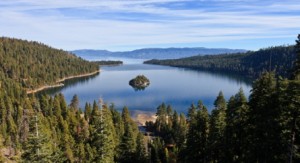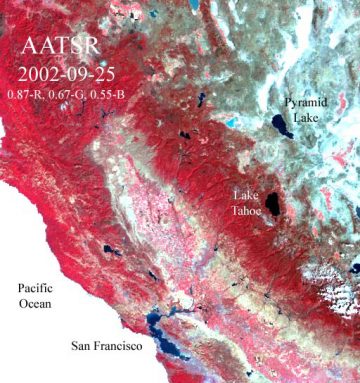Lakes, too, feel global warming
There’s no doubt: In the last few decades, the average temperature on Earth has been higher than it’s been in hundreds of years. Around the world, people are starting to measure the effects of global warming — and trying to figure out what to do about it.

In some places, lakes have been warming by as much as 0.10 degree Celsius per year. At that rate, a lake may warm by a full degree Celsius, or 1.8 degrees Fahrenheit, in just 10 years. That difference may seem small — you might not even notice it in your bathtub. But in a lake, slightly warmer temperatures could mean more algae, and algae can make the lake poisonous to fish.
The scientists who did the study work for NASA’s Jet Propulsion Laboratory at the California Institute of Technology in Pasadena. They report that lakes seem to be warming faster in the northern parts of the Northern Hemisphere. In the United States, lakes in the southwestern part of the country warmed faster than did the Great Lakes in the north.
The study shows that in some regions, lakes are warming faster than the air around them. This is important because scientists often use measurements of air temperature to study how the Earth is warming. By using lake temperatures as well, scientists can get a better picture of global warming. The scientists say data on lakes give scientists a new way to measure the impact of climate change around the world.

That’s why the United Nations started the Framework Convention on Climate Change, or UNFCCC. Every year the convention meets, and representatives from countries around the world gather to talk about climate change and discuss global solutions to the challenges of a warming world. This year, convention members will also discuss progress on the Kyoto Protocol, a plan to get the world’s largest polluters to reduce global greenhouse gas emissions. This year’s meeting began November 29 in Cancún, Mexico, and ends December 10.
“Climate change is humanity’s long-term challenge,” Christiana Figueres told the audience on the first day of the conference. Figueres is the executive secretary of the UNFCCC. “Cancún will be successful if parties compromise, if they make sure that in the process of getting what they want they allow others to leave with what they need.”
The President of Mexico, Felipe Calderón, also spoke on the opening day. He said we are already seeing the devastating effects of climate change, including recent storms and hurricanes in Mexico, flooding in Pakistan and devastating fires in Russia. It is important to do something, he said, for the sake of our children, and of their children.
“Climate change is an issue that affects life on a planetary scale,” Calderón said.







